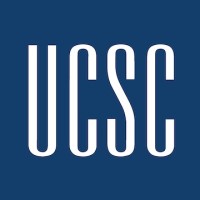Doctor of Philosophy in Linguistics
UC Santa Cruz
Santa Cruz, CA
The graduate program in linguistics at the University of California, Santa Cruz is a small, focused program in linguistic theory leading to Doctor of Philosophy (Ph.D.) or Master of Arts (M.A.) degrees. The research interests of faculty and students draw mostly on the framework of generative grammar, with a primary focus on theoretical and experimental approaches to morphology, phonetics, phonology, pragmatics, psycholinguistics, semantics, and syntax. Research strengths also include the study of various languages, computational methods, and field methods.
While committed to training in theoretical depth, the program makes possible an unusual breadth of theoretical and experimental understanding. Research in syntax focuses on ways in which generative theory and language-particular analysis inform one another. Faculty expertise covers principles and parameters theory, minimalism, and experimental syntax. Research in phonetics and phonology is pursued in various current frameworks, including optimality theory and dispersion theory. The issues covered range from phonetics and the phonetics-phonology interface to prosodic theory, prosodic morphology, and the syntax-phonology interface. Research in semantics applies formal, model-theoretic techniques to illuminate the interface between syntactic structure and interpretation and the role of semantic competence in the pragmatics of utterance interpretation. Experimental research in these areas reaches out to a broad range of issues in psycholinguistics and cognitive science.
The faculty have expertise in a diverse range of languages, including Chamorro, German, Hebrew, Hindi, Hungarian, Irish, Japanese, Kaqchikel Mayan, Uspanteko Mayan, Latin, Northern Paiute, Persian, Polish, Romanian, Russian, Spanish, Turkish, and Zapotec.
From the beginning of their studies, students are engaged in original research and critical evaluation, since the program aims to provide sophisticated training as a foundation for a career in academic research and teaching. The program begins with a sequence of foundation courses in phonetics, phonology, syntax, semantics, and psycholinguistics, addressing both formal and experimental approaches. Subsequent coursework emphasizes depth; it is increasingly centered around the doctoral student’s independent research, culminating in the completion of a dissertation.











